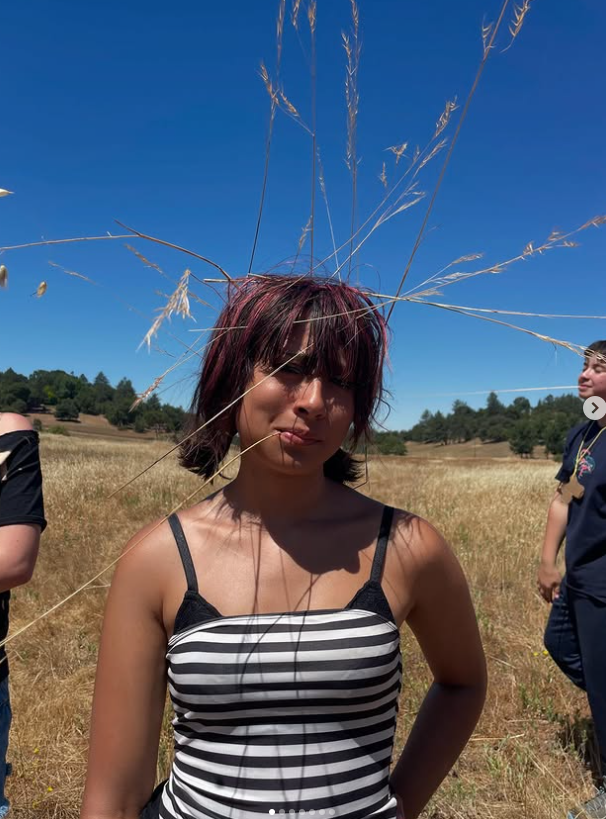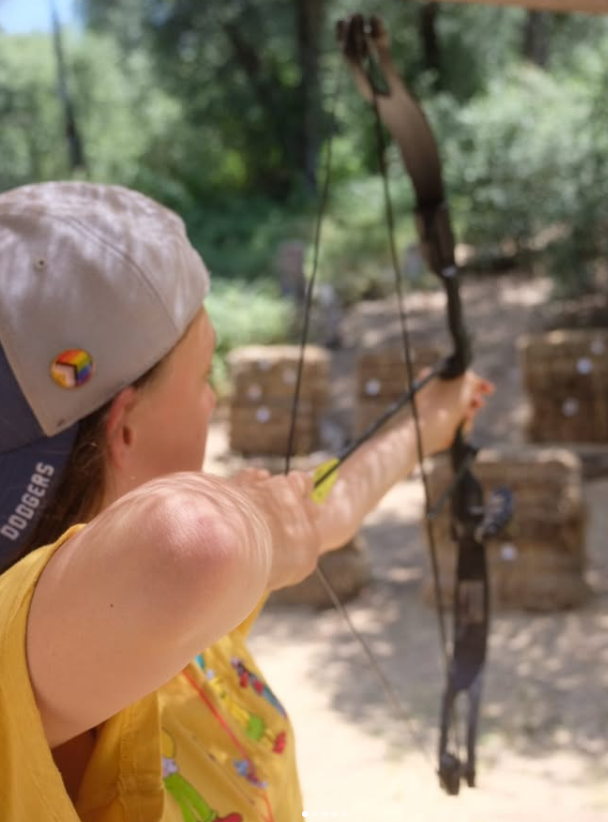The Magic of Summer Camp and Why It Feels Like Church
This past summer, I served as a camp chaplain for the fourth year in a row, and something clicked in a way it hadn’t before: I finally get the magic of summer camp. I don’t just mean I understand the fun of s’mores or silly songs or sleeping in cabins (though I do). I mean, I finally understand why people talk about camp like it’s holy ground–because it is. The magic of summer camp is the same magic I’ve always known in church: people coming together, learning to love each other, growing in relationship, and practicing what it means to belong.
At its heart, summer camp is about community–the type of community Jesus invites us to. It’s about being deeply known and wildly accepted. In a world where so much is transactional, hierarchical, or image-driven, camp–and church–offers a radical alternative. You matter here not because of how you look or how much money your family has, or what you can achieve. You matter because you’re you.
Camp strips things down to what’s essential. There’s no need to perform. Kids don’t have their phones. Makeup doesn’t matter. Clothing trends don’t define anyone. What rises to the surface are the qualities that truly sustain life: kindness, empathy, courage, creativity, joy. These values are not just encouraged–they are the currency of camp. They are celebrated, practiced, and passed around like friendship bracelets or bug spray.
trends don’t define anyone. What rises to the surface are the qualities that truly sustain life: kindness, empathy, courage, creativity, joy. These values are not just encouraged–they are the currency of camp. They are celebrated, practiced, and passed around like friendship bracelets or bug spray.
As a chaplain, I get to float among cabins and activities. I lead worship under oaks and pines and grape leaves. I talk about God by the fire pit. I offer support when homesickness hits or when someone feels left out. But mostly, I get to witness the sacred work of friendship and formation. And I’m convinced: this is discipleship. This is church.
Every summer, kids flock to camps for fun and independence. Yet what they remember most aren’t the ropes courses or canoe rides–it’s the friends. Camp friendships are forged in the intensity of shared experience: whispering in bunks at night, singing at community gathering, struggling together through team challenges, or laughing uncontrollably during skits and celebrations. These bonds go deep, fast. And for many, they last a lifetime.
Why? Because camp removes the filters. There’s no scrolling, no selfies, no social media anxiety. Campers spend days unplugged and fully present. They get to know each other face-to-face, moment by moment. In today’s screen-saturated world, this kind of connection is both rare and healing.
Camp friendships aren’t based on social status or clique dynamics. Kids aren’t sorted by grades or extracurriculars or Instagram followers. They’re mixed together–shy kids, confident kids, goofy kids, introverts, extroverts–and invited into a shared life. For many, it’s the first time they experience unconditional belonging.
Camp doesn’t care about what neighborhood you’re from or what labels you carry at school. It asks, instead: What brings you joy? What’s your favorite game? Want to sit with us?
I’ve watched campers show up hesitant and guarded, unsure if they’ll fit in. Within a day or two, they’re painting faces, sharing stories, playing gaga ball like they’ve known each other forever. This isn’t accidental–it’s intentional. Camp is structured to foster trust, connection, and inclusion.
In many ways, camp becomes a sanctuary from the harsh realities of judgment and exclusion. It echoes the way Jesus welcomed people–on the basis of their humanity, not their status. When camp is done well, it models what a church can be: a place where people are received with delight, not evaluation.
 Camp isn’t always easy. That’s part of the magic. Kids face challenges–being away from home, trying new activities, navigating cabin dynamics. But here’s the beauty–they do it together. They learn to solve problems, ask for help, and try again after failure. And they’re surrounded by friends and counselors cheering them on.
Camp isn’t always easy. That’s part of the magic. Kids face challenges–being away from home, trying new activities, navigating cabin dynamics. But here’s the beauty–they do it together. They learn to solve problems, ask for help, and try again after failure. And they’re surrounded by friends and counselors cheering them on.
This builds emotional and spiritual resilience. Campers learn they can handle discomfort. They discover they can be brave and vulnerable. They realize that community is built not in perfection, but in practice–in showing up, day after day, with grace and grit.
This is formative work. It prepares kids not just for school or adulthood, but for discipleship. It teaches them what it means to be part of a beloved community–imperfect, messy, real–and how to keep showing up for one another. Isn’t that the very essence of Christian life?
Camp is church without the pews. It’s worship without the bulletin. It’s theology lived in real time, around a campfire or at the edge of a trail. It’s prayer in motion, in the form of shared meals, spontaneous laughter, and quiet moments of awe under the stars.
Kids at camp learn about the God who delights in their creativity, who meets them in their questions, who walks with them in friendship. They learn that sacred things don’t only happen in buildings. They happen in games, in trust falls, in songs sung out of tune.
As my week as a chaplain ended, I asked myself: How can we bring this magic into our churches? Can we create communities that are just as welcoming, where people are met without judgment? Can we build relationships that go deep, fast–because time is short and love matters more than image? Can we structure our ministries to foster real connection, rather than just polished programming? Yes. Because the magic of camp is not a mystery. It’s just love, practiced fiercely and freely.
Camp taught me (again) that people are hungry for belonging; that kids thrive when they are trusted; that friendships forged in shared experiences become sacred bonds; that when we slow down, unplug, and listen to each other–God shows up. That camp is holy ground.
If you would like to learn more about Camp Stevens, visit www.campstevens.org
by
Category: #Youth, Children, & Families
Respond to this:
2 replies to “The Magic of Summer Camp and Why It Feels Like Church”
Recent Stories
Today is Ash Wednesday, the beginning of Lent, the season of repentance and preparation for the gift of Easter. On this day, Christians pray litanies of repentance and receive ashy […]
Today, it isn’t uncommon to see ashes being distributed on sidewalks, at train stations, or at bus stops. We know it as Ashes to Go, and although no one knows […]
What happens when 30 children from across our diocese spend a weekend at Camp Stevens? Joy gets louder, friendships form fast, and God shows up everywhere they look. From January […]





This article is amazing! Makes me wish I had the opportunity to go to camp.
Great article, Hannah! You have a magic way with words.